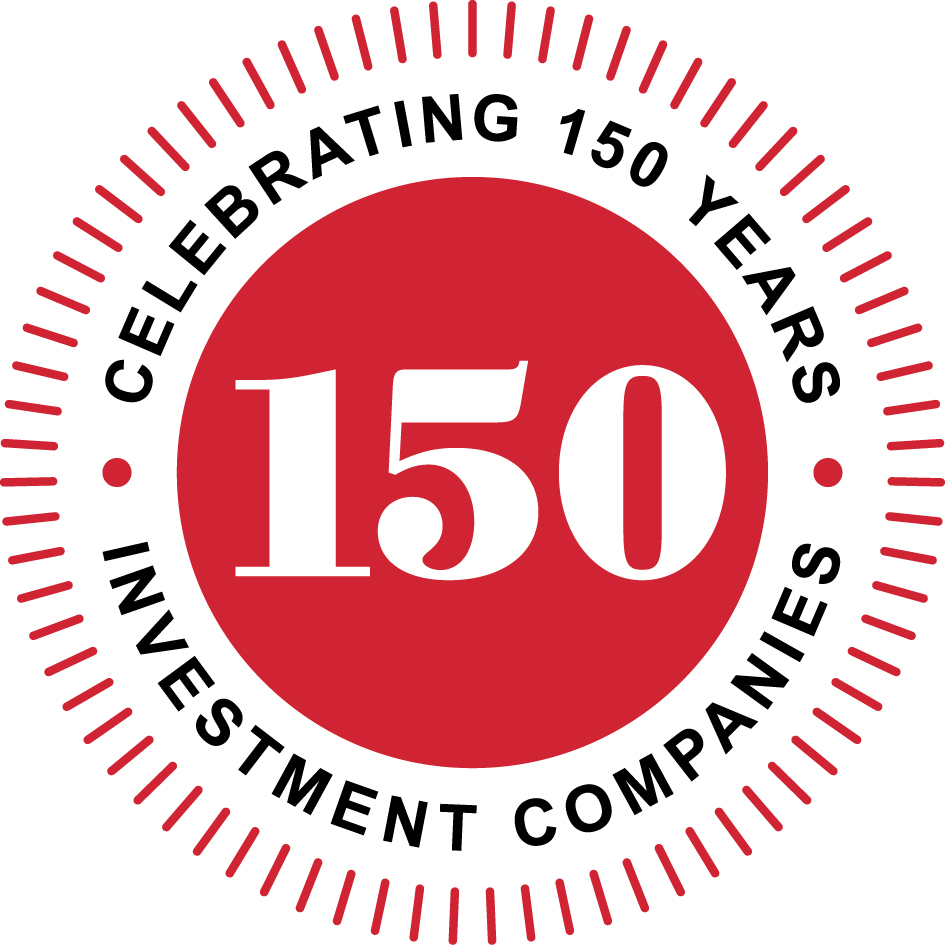Five oldest investment companies: still relevant after 150 years
New video, Changing times, one vision: 150 years of investment companies, to tell story of investment companies.
 19 March 2018 is the 150th anniversary of the launch of the first investment company, Foreign & Colonial Investment Trust, in 1868. Over 150 years, investment companies have helped investors meet their financial needs and navigated through tough times including two world wars, the great depression, the tech boom (and bust) and the global financial crisis, but how have they remained relevant for today’s investor?
19 March 2018 is the 150th anniversary of the launch of the first investment company, Foreign & Colonial Investment Trust, in 1868. Over 150 years, investment companies have helped investors meet their financial needs and navigated through tough times including two world wars, the great depression, the tech boom (and bust) and the global financial crisis, but how have they remained relevant for today’s investor?
The Association of Investment Companies (AIC) today held a media roundtable with the managers of the three oldest investment companies, Foreign & Colonial Investment Trust (150 years), Dunedin Income Growth Investment Trust which is 145 years old and Scottish American which is 144 years old. The managers discussed how their companies had continually adapted to meet investors’ needs as well as their outlook for markets.
Their views have been collated alongside comments from the managers of the fourth and fifth oldest investment companies, JPMorgan American Investment Trust which is 136 years old and The Mercantile Investment Trust, which is 133 years old.
To celebrate 150 years of investment companies, the AIC has also produced a new video, Changing times, one vision: 150 years of investment companies, exploring the sector’s strengths over 15 decades.
Annabel Brodie-Smith, Communications Director of the Association of Investment Companies, said: “Investment companies have been helping investors achieve their financial goals for 150 years. Their pioneering spirit has enabled investors to access growth opportunities in new markets and sectors around the world and has delivered strong and reliable dividends for income seekers. The fact that 23 investment companies have track records going back over 100 years shows how the sector has stood the test of time. It’s interesting too that investment companies are just as innovative today, with 17 investment companies launched since 2017 as the sector continues to adapt to meet investors’ needs.”
How investment companies have remained relevant
Paul Niven, fund manager of Foreign & Colonial Investment Trust, said: “The Trust was established 150 years ago with the purpose of bringing the advantages of a pooled approach to investing to the investor of ‘moderate means’ and its objective is as true today as it was on the first day it was founded. The key to the Trust’s success, having paid a dividend to shareholders in every year of its history and having increased dividends for 47 consecutive years, is that it has never stood still. It has continued to successfully evolve to ensure it remains relevant for investors of today.”
James Dow, co-manager of Scottish American, said: “Investment companies like Scottish American have remained relevant for 150 years by remaining true to sound investment principles. In Scottish American's case, our long-standing focus has been to invest in growing companies with robust cash flows which are overseen by boards with a strong commitment to paying dividends. This tried and tested approach has underpinned the Trust's long record of inflation-beating income growth for its shareholders. We expect this to continue long into the future.”
Ben Ritchie, lead manager of Dunedin Income Growth Investment Trust (DIGIT), said: “DIGIT started life under Robert Fleming in the 1870’s investing in North American railroad bonds. Today, close to a hundred and fifty years later, it invests predominantly in UK equities. Our ambition remains to provide a compelling combination of capital and income growth to our investors using the natural advantages of the investment trust structure. DIGIT is increasingly well positioned to meet the challenge of providing a relatively high and growing dividend in a world where yield is scarce.”
Garrett Fish, portfolio manager of JPMorgan American Investment Trust, said: “JPMorgan American Investment Trust was one of the original Emerging Markets investment vehicles when it launched in 1881, investing in three of the railroads that were being built to service the new growth economy that was the United States. Over time, the Company's name and investment objectives have changed to reflect the changing opportunities that investors face. The US is now home to some of the world’s biggest companies and most recognisable brands, with a stock market that provides access to the growth of the world’s largest economy and the chance to benefit from the strength of corporate America. It’s an exciting growth story.”
Guy Anderson, portfolio manager of The Mercantile Investment Trust, said: “Mercantile was founded the same year Greenwich was chosen as the world’s prime meridian, in 1884, when there was a wave of passion for science and innovation. This was reflected in the trust’s early investments which included railways, steam navigation and telegraph communications. While the focus of Mercantile’s investments has evolved over time, such that today it constitutes UK listed mid and small-cap companies, this passion for investing in innovation and growth remains. This is evidenced by today’s portfolio which includes many companies using advances in technology to both drive and profit from structural changes in their markets.”
Adapting to meet investors’ needs
James Dow, co-manager of Scottish American, said: “Another of the advantages of investment companies like Scottish American is the ability to reserve revenues. Whilst we expect all our investments to generate income across economic cycles, the Trust's revenue reserve provides another mechanism to support its dividend through thick and thin. This advantage has helped Scottish American maintain or grow its dividend every year since 1938. With rising numbers of people entering retirement and looking for a dependable source of income, we expect Scottish American's dividends to shareholders to remain as relevant as ever.”
Paul Niven, fund manager of Foreign & Colonial Investment Trust, said: “The development of Foreign & Colonial Investment Trust was truly innovative and has helped shape the investment industry today. Since its launch the closed-ended funds universe has grown substantially, with investment trusts now recognised as an ideal structure for those looking to make long-term investments.
“Our recent move towards a more global focus represents another significant evolution for the Trust. Diversification remains an important aspect of our approach and the Trust continues to be a core growth holding for many shareholders. A diversified approach with investments in listed equities and unlisted private equity across different geographies, sectors and styles means that we are well placed to continue to deliver on our dual objectives of growth in both capital and income over the longer term.”
Outlook for markets
Ben Ritchie, lead manager of Dunedin Income Growth Investment Trust, said: “Following a prolonged bull market a focus on capital preservation and resilience of income is likely to prove more relevant in the years ahead. We continue to seek diversification of income, retain a strong balance sheet with modest equity gearing and substantial revenue reserves and are continuing to focus our capital investment towards companies with greater sustainable growth prospects.”
Guy Anderson, portfolio manager of The Mercantile Investment Trust, said: “Our approach has translated into attractive returns over both the long and short-term, with Mercantile’s share price return totalling 870% over the past 20 years, and 93% over the past five. We remain committed to identifying and investing in those companies that have strong business models, are suitably financed and are well placed to succeed. We also anticipate that the favourable dynamics of mid and small-sized companies will continue to drive superior returns over the long term.”
Garrett Fish, portfolio manager of JPMorgan American Investment Trust, said: “The investment philosophy we employ in the management of JPMorgan American Investment Trust is founded on the belief that stock selection, grounded in proprietary fundamental research, a consistent valuation approach and disciplined portfolio construction should enhance long-term returns. Looking ahead, we do not see a material risk of a recession in the near term but continue to monitor a broad range of potential risks which could represent headwinds for US equity markets. The passage of the tax reform act removed one risk to the market but investors will have to monitor how the implications of tax reform, trade policy, inflation and rising rates play out and respond in a flexible manner.”
Paul Niven, fund manager of Foreign & Colonial Investment Trust, said: “Looking ahead, interest rate rises and potentially higher bond yields may create some challenges for risk appetite in 2018. However, inflation, while expected to rise, should remain relatively benign. We anticipate that it will prove another positive year for equities, which are unlikely to have reached peak prices just yet.”
-Ends-
Follow us on Twitter @AICPRESS
Notes
- The Association of Investment Companies (AIC) was founded in 1932 to represent the interests of the investment trust industry – the oldest form of collective investment. Today, the AIC represents a broad range of closed-ended investment companies, incorporating investment trusts and other closed-ended investment companies and VCTs. The AIC’s members believe that the industry is best served if it is united and speaks with one voice. The AIC’s mission statement is to help members add value for shareholders over the longer term. The AIC has 347 members and the industry has total assets of approximately £174 billion.
- Disclaimer: The information contained in this press release does not constitute investment advice or personal recommendation and it is not an invitation or inducement to engage in investment activity. You should seek independent financial and, if appropriate, legal advice as to the suitability of any investment decision. Past performance is not a guide to future performance. The value of investment company shares, and the income from them, can fall as well as rise. You may not get back the full amount invested and, in some cases, nothing at all.







